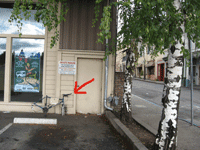

Last week.
Stale blog offering Perspective on ideas, issues and life from Nevada County, California - belaboring the obvious since 2003
[Dave, your] story doesn't mention that the "one full year" reqt has only been met 3 times in the last 30 years, as documented here:
"...once in the late 1980s (for about ten quarters), a similar stretch in the late ‘90s, and once in 2005-06."
The National Academies, fulfilling a congressional request, have issued a trio of invaluable reports affirming the scientific case for a growing and largely harmful human influence on climate; proposing a path and strategies for curbing American emissions of heat-trapping gases; and urging the country to work to cut risks attending life with no new “normal” climate patterns or coastlines.





"...many [anti-woo] skeptics have limited scientific qualifications...Even skeptics who do have scientific qualifications are frequently called upon to comment outside of their area of domain expertise..."yet
"people turn to [real] skeptical media to find out what’s really true about weird things... Skeptics solicit that trust. We make the implicit (and sometimes explicit) promise that we are able to provide the nuanced, objective, evidence-based facts."
"...the consensus(*) is the result of the scientific process that as [real] skeptics we supposedly believe in. It is the whole point of the movement. So, when you scoff at the consensus(*) you are scoffing at science itself – in effect you are arguing that the scientific system doesn’t work, at least at this time of civilization."
 (h/t Stearns)
(h/t Stearns)


"Reality is that which, when you refuse to believe in it, doesn't go away" - Philip K. Dick
NCFocus etc journalism sampler